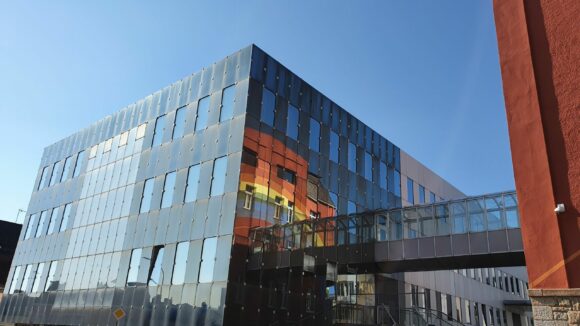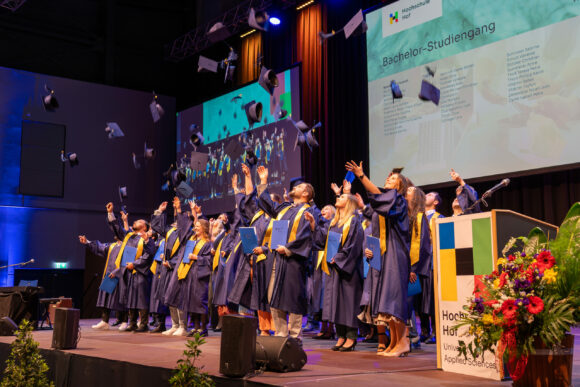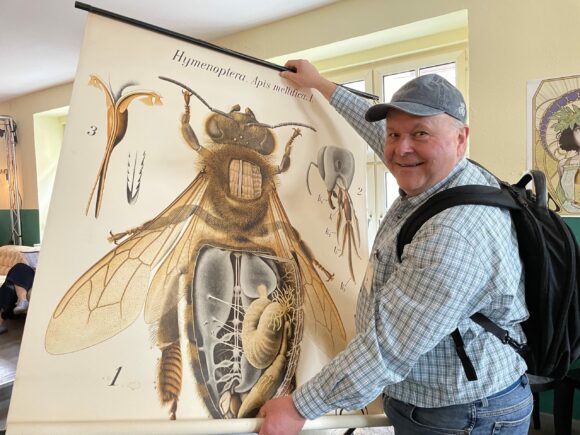In just five weeks, the Hof University of Applied Sciences’ new bachelor’s degree program, Innovative Healthcare, will start at the Lucas Cranach Campus in Kronach. The original idea was to accommodate the new students in the Kühnlenz area. But availability of the rooms by fall 2021? Unthinkable. Now a new solution is waiting in the wings on Kulmbacher Strasse.
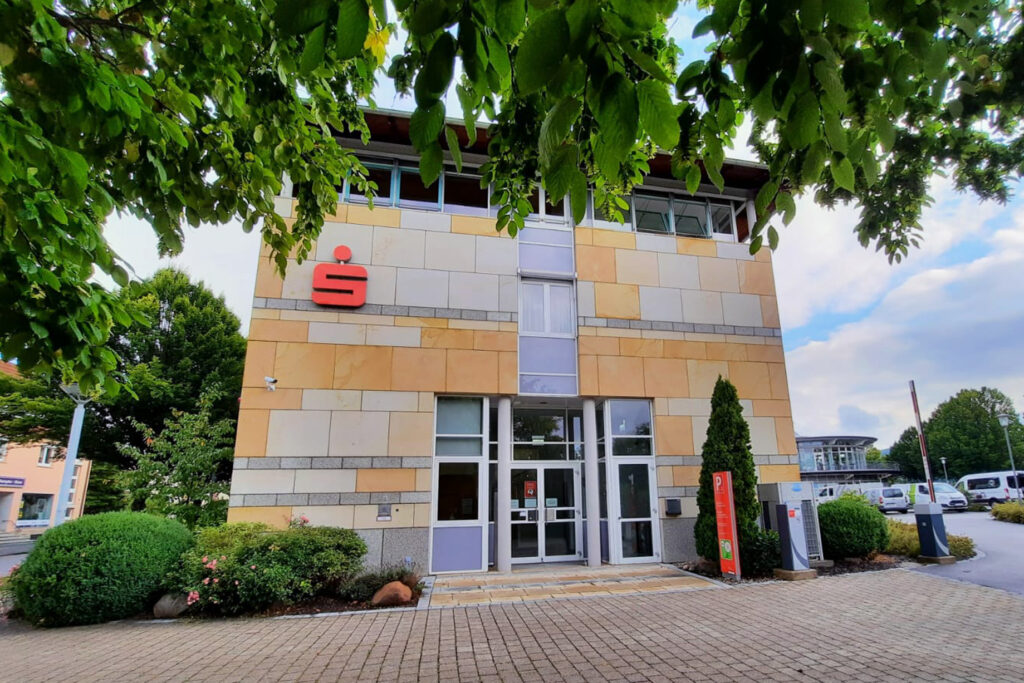
“And where exactly do we actually study?” – This question is at the forefront of applicants’ minds right now in the new Innovative Healthcare degree program. “We are expecting about 15 to 20 students at the start of the winter semester in October,” says Constanze Scheibl-Barnickel, Head of Location Development and Location Management in Kronach. As of today, the course of study will initially move into the second floor of the main branch of the Kronach-Kulmbach savings bank: the Hof University of Applied Sciences has around 1,000 square meters at its disposal here. Bright and modern rooms are a plus – although final renovation work is still underway. And it is not only in the building, but also at Hof University of Applied Sciences that preparations are in full swing: the introductory days for the freshmen are currently being organized, the equipment for the laboratories is being finalized and talks are being held with other possible practical partners regarding project work or practical semesters.
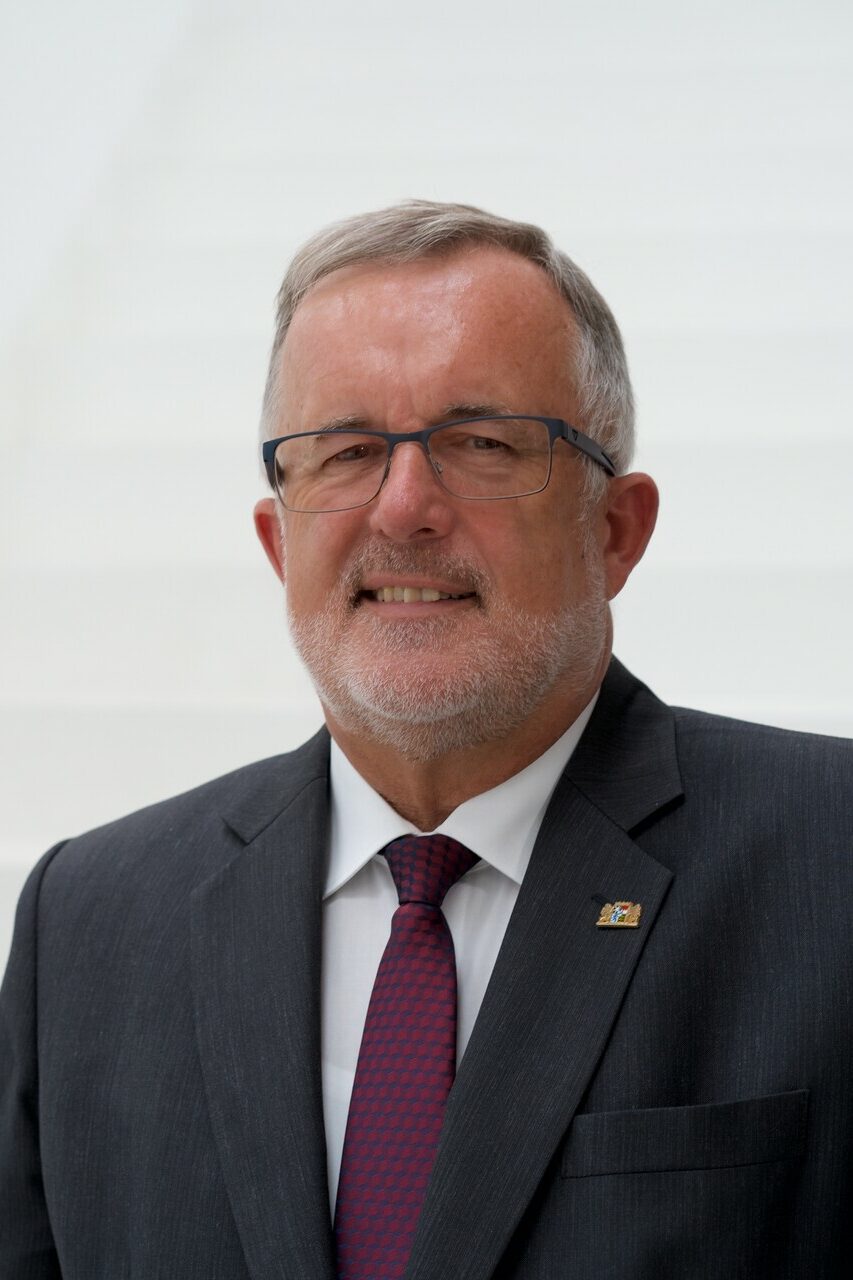
For the start of the new course of study at Hof University of Applied Sciences, Innovative Healthcare in Kronach, we have found a modern location in the Sparkasse, which is ideally suited to the introduction of the new innovative offering of Hof University of Applied Sciences. Expansion possibilities open future perspectives for a further development of our study offer.
University President Prof. Dr. Dr. h.c. Jürgen Lehmann
Access to the savings bank building for university employees – in contrast to savings bank customers – will be via the rear entrance, from Langer Steig. “The new location is very easy to reach on foot and is close to the old town. Cafés and restaurants are therefore virtually just around the corner, so it’s ideal for students,” adds Scheibl-Barnickel. The transition between the building sections also offers a great view of the Rosenberg Fortress, Kronach’s landmark.
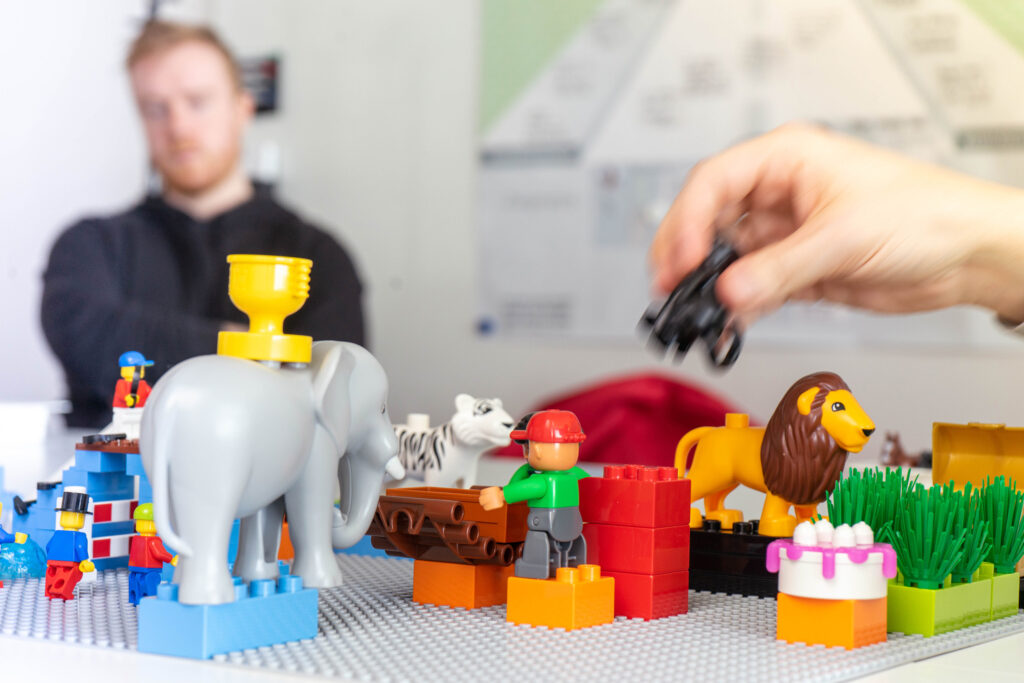
Among other things, a lecture hall and a seminar room for group work are being created on the second floor of the Sparkasse, where innovative teaching methods such as Scrum, Lego Serious Play or bar camps will be used in particular.
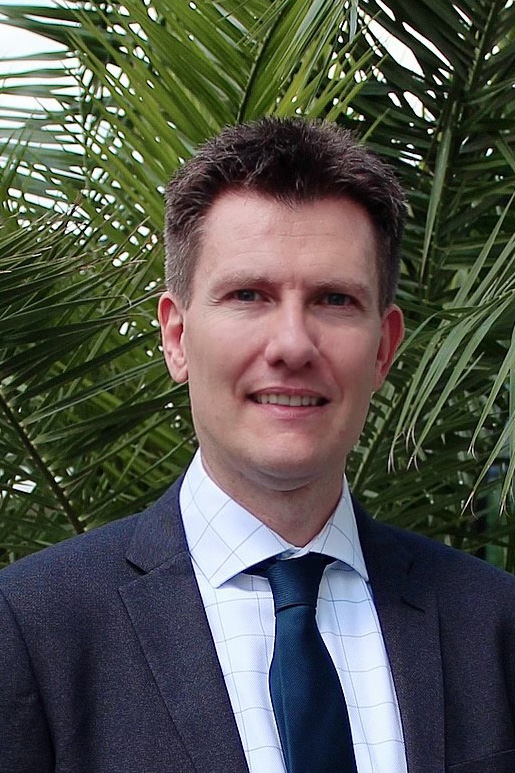
“The economy and society are undergoing considerable change, not least due to digitalization. Universities, too, must not close their minds to the changing conditions and must increasingly impart more and different methodological knowledge,” explains course director Prof. Dr. Gerald Schmola and ties in
However, in addition to the question of what we teach, the focus is also on how we teach our students competencies. Understanding, application and critical reflection succeed better and more sustainably if activating, innovative teaching approaches are used from the outset to encourage students not just to consume knowledge.
Program Director Prof. Dr. Gerald Schmola
Practical orientation is the focus of the university’s Innovative Healthcare program. Therefore, several laboratories focusing on health informatics, health technology, accessibility, everyday assistance systems (AAL) and smart home are also established
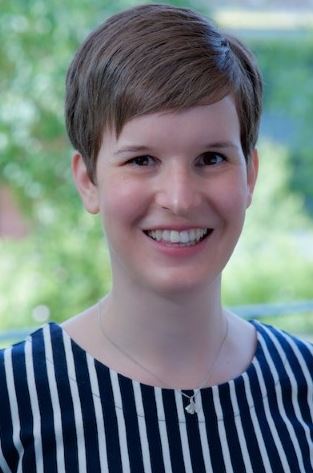
The labs offer students an innovative learning environment in which they can, for example, directly experience everyday challenges faced by physically or mentally impaired people, as well as caregivers. At the same time, they can also try out assistive devices, technologies and digital applications on site in real-world scenarios and test what is or is not suitable for use in practice.
Constanze Scheibl-Barnickel, Head of Site Development and Site Management in Kronach
The labs’ inventory therefore currently includes VR goggles, age simulation suits, an autonomous transport robot and exoskeletons. The existing “Bräustüberl” of the Sparkasse can be used as a common lounge for students, lecturers and administrative staff during breaks.
The goal of the interdisciplinary Innovative Healthcare program is to train tomorrow’s experts who will work at the interface between IT, engineering, healthcare, and management in the healthcare and social sectors. Students will learn within seven semesters how to increase the well-being of all people preventively and with the use of digital tools. An interdisciplinary project and a practical semester are firmly integrated into the program.
More information about the study program here




